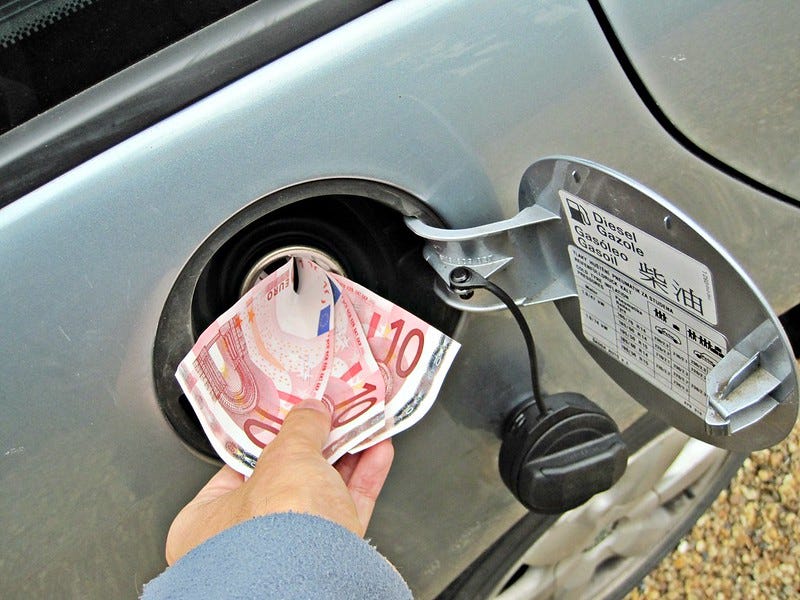Biden's climate plan similar to Europe's Green New Deal, but what about the cars?
As Europe's leaders laud a new era of cooperation on climate policy and finance, Stephen Rae drives home a point our differing tastes in gas guzzlers

(Stephen Rae is the former Group Chief Editor of INM, Ireland’s largest online and print media group. He serves on the board of the World Association of News Publishers (WAN-IFRA). He was appointed by the European Commission to its High Level Expert Group on Online Disinformation, and is the publisher and editor of AML Intelligence, about global money laundering.)
DUBLIN (Callaway Climate Insights) — One of the delights for this European visiting the United States down the years has been exposure to American automobiles.
We all know Americans love their cars, which look and sound a lot different State-side. Many moons ago I landed at the airport in Orlando, Fla. and imagine my surprise when the car hire attendant handed over the keys to a 5.7 liter Dodge Durango Hemi. A similar experience today would probably get me thrown off the team at Callaway Climate Insights.
I guess what I’m trying to say is that it’s hard from a European perspective to see how President-elect Joe Biden is going to engineer his promise on reducing the number of gas guzzler automobiles in the U.S.
One person who is already convinced he can do this is French MEP Pascal Canfin, chairman of the European Parliament’s powerful environment committee. Lauding Biden’s election, Canfin said, “Where we come together completely in Biden’s program — and in the continuity of what [President Barack] Obama had started to do — is, for example, on cars,” saying the president-elect is “very close” to what the European Commission is proposing on CO₂ emission standards for cars.
“The proposed emission thresholds are so low that only electric and hybrid cars will continue to be allowed on the market,” Canfin said.
Maybe I’m missing something but I do not detect the same appetite for low-emission cars in the U.S. as on this side of the Atlantic.
Canfin believes Biden’s victory “is great news for all climate advocates” five years on from the Paris Agreement. “One of Biden’s first decisions will be the return of the U.S. to the Paris Agreement,” Canfin said. Change at the top in Washington, D.C. would also build momentum behind the international climate agenda “after the Trump parenthesis,” and also comes shortly after China and Japan said they would aim for carbon neutrality by 2060 and 2050 respectively.
It was striking during the U.S. election campaign how Biden’s program had such similarities to the European Green Deal, and Canfin reckons “we are going to be on very parallel objectives.”
“One could quite imagine setting up transatlantic cooperation” on climate policy to accelerate the transition to a zero-carbon economy, he said, adding that Europe and the U.S. would still remain global competitors.
He also sees potential for transatlantic convergence in sustainable finance, where Europe and the U.S. have the opportunity to set global standards by establishing “a financial Green Deal.”
Biden has spoken of $5 trillion in public and private finance to support the ecological transition in the U.S. up to 2030, an amount which is close to Europe’s assessment of €4 trillion. “We therefore have a very comparable analysis of the issues, objectives and tools, which opens the prospect of real transatlantic cooperation on the Green Deal,” Canfin said, adding he will reach out to fellow members of the U.S. Congress to coordinate on key legislative dossiers.
Commission President Ursula von der Leyen has also said she believes the EU can work with the new U.S. administration on common pressing challenges such as “fighting the Covid-19 pandemic” and “tackling climate change together.” While Manfred Weber, leader of the European Parliament’s biggest group, the center-right EPP, listed climate change and China among the “global challenges that we cannot deal with alone.”
Certainly the EU and U.S. are on a path to build bridges and climate neutrality by the fourth week of January 2021 will be a common goal. Which still leaves me mystified around cars. Did I mention fracking and shale gas?

